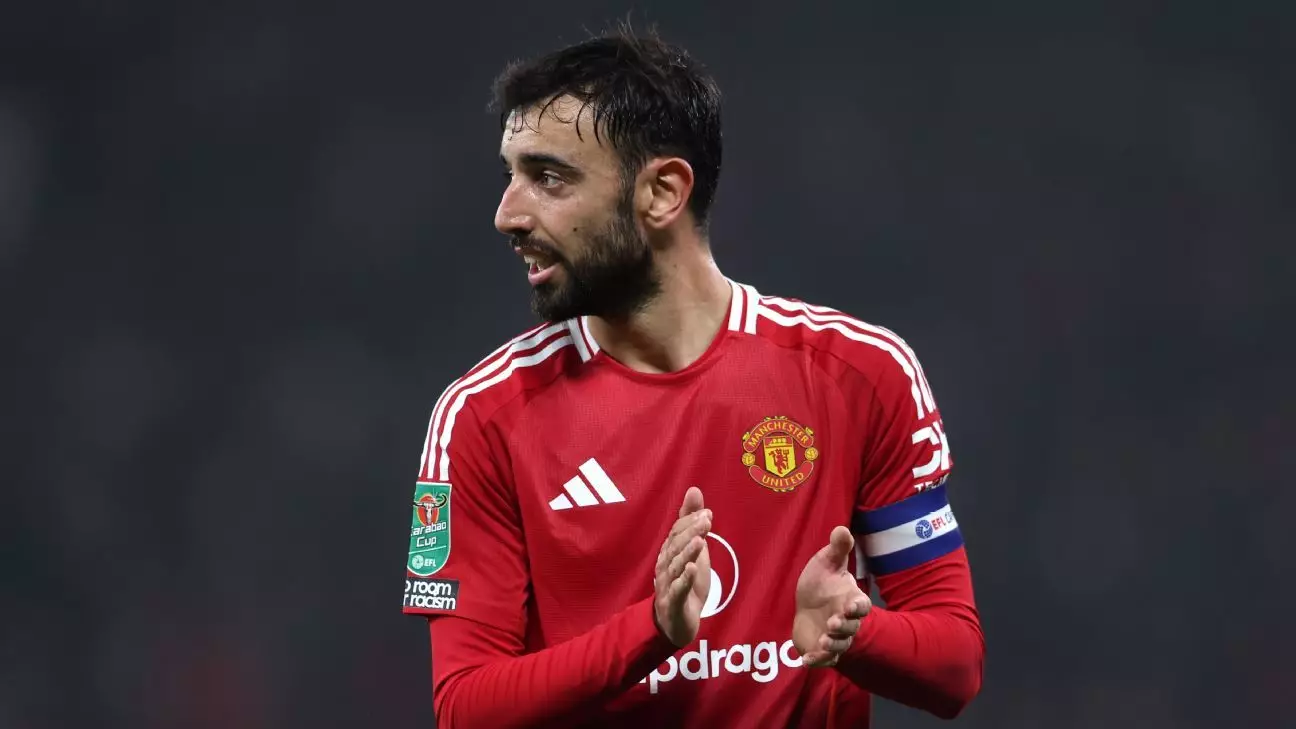Bruno Fernandes, the influential midfielder of Manchester United, has openly expressed his remorse regarding Erik ten Hag’s recent departure from the club. Following the ex-manager’s sacking, Fernandes took the initiative to reach out to Ten Hag personally, recognizing the peculiar dynamics that often accompany managerial changes in football. His acknowledgment that the players must share the blame for the team’s struggles is a mark of character and accountability that is not always seen in professional sports.
In an interview, Fernandes emphasized that when a manager is relieved of their duties, the performance of the players inevitably stands under scrutiny. The midfielder articulated, “It is easier to get rid of a manager than 15 players,” indicating a profound understanding of the intricacies of team dynamics. This sentiment showcases the harsh realities of professional football, where decisions are often taken swiftly, leaving behind trails of unfulfilled potential.
The sacking of Ten Hag has marked a turbulent chapter for Manchester United. Transitioning from a trusted figure to caretaker management under Ruud van Nistelrooy highlights the uncertainties and challenges the club must navigate. Following the departure, United managed to secure a win against Leicester in the Carabao Cup and held Chelsea to a draw in their first league game, albeit under a shadow of turmoil and emotional upheaval.
Van Nistelrooy himself acknowledged the difficulties faced during this transition. The rollercoaster of emotions that he described paints a vivid picture of the pressure cooker environment at Old Trafford. Players are not just playing for personal accolades but for the legacy of an entire club that has seen highs and lows. The need for reflection, as mentioned by Van Nistelrooy, indicates an awareness among the squad that a collective effort is necessary for rebounding from their poor start to the season.
The anticipation of new management under Rúben Amorim brings both hope and uncertainty. While van Nistelrooy prepares for two significant matches, including a Europa League clash, the impending transition to Amorim may bring fresh philosophies and tactics that could reinvigorate the team. It is crucial to recognize how managerial styles impact player performance and morale. Amorim’s successful track record in Portugal suggests he will introduce innovative strategies; however, his integration into an already turbulent environment may present its own set of challenges.
Van Nistelrooy’s future after Amorim’s arrival remains clouded, with the caretaker manager himself suggesting an openness to whatever roles may be available. This ambiguity reflects the precarious situation that often ensues upon a managerial change, where existing staff must navigate their futures while also contributing to the club’s ongoing objectives. The vibrant culture of a football club can only thrive when both management and players are aligned in their goals.
In the wake of a manager’s departure, it is paramount for the team to unify and move forward with resilience. Fernandes’s remarks underscore a critical understanding that the team’s identity and performance are unpacked in the context of collective responsibility. The pressures of representing Manchester United cannot be understated; the weight of expectation often translates into the burden of scrutiny.
As the club transitions, it will be essential for both players and incoming management to foster camaraderie and synergy to stem the tide of disenchantment. The footballing landscape is unpredictable, yet the capacity for growth and transformation remains within reach if the players reflect, unite, and push forward with a shared purpose.
Manchester United’s journey post-Ten Hag will undoubtedly be challenging. However, with introspection from players like Fernandes and the potential for innovative management under Amorim, there lies a flicker of hope for a brighter future. The key now rests in the hands of the players to harness this transitional phase, learn from past setbacks, and rebuild toward the glory synonymous with Manchester United.

